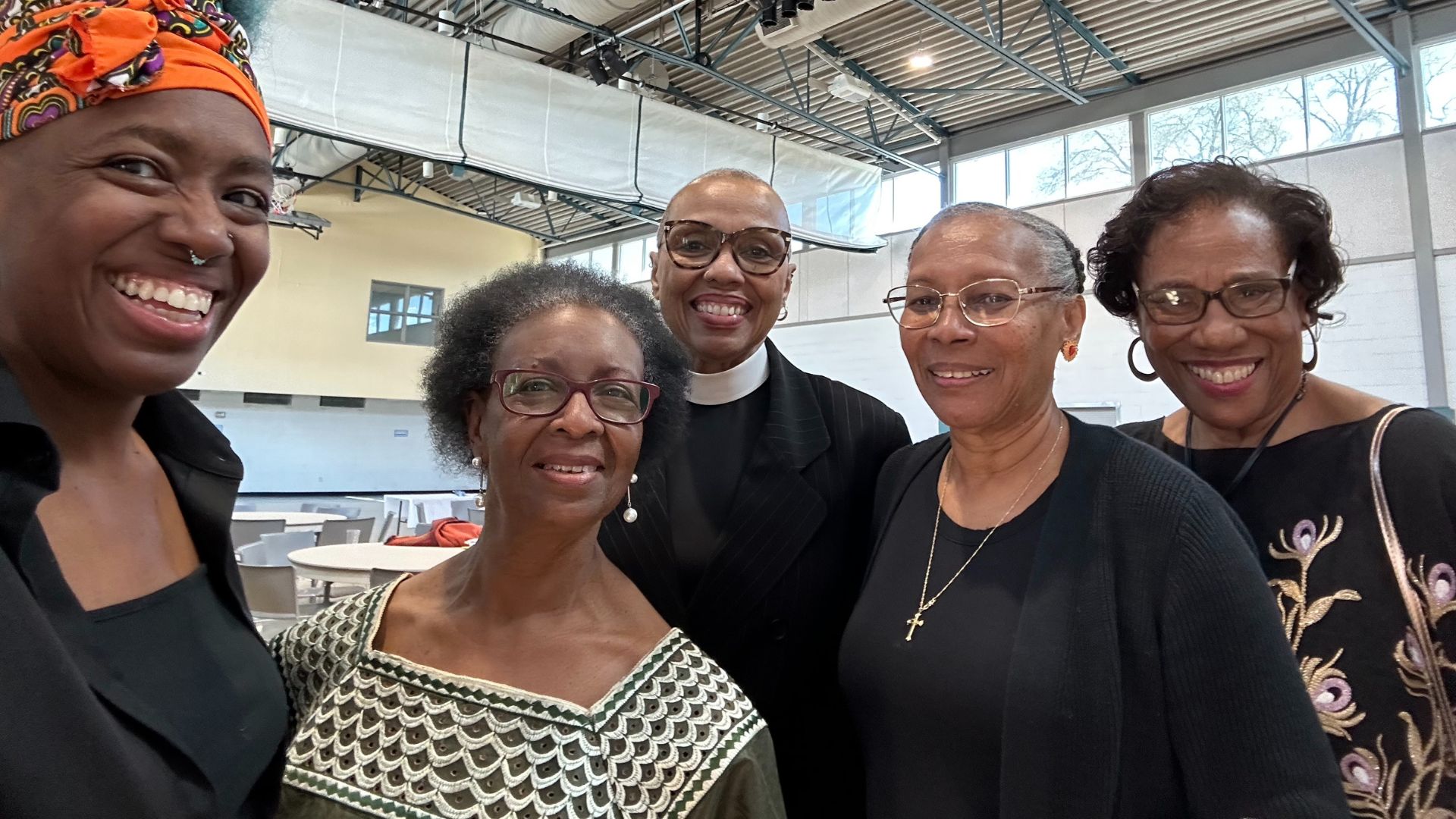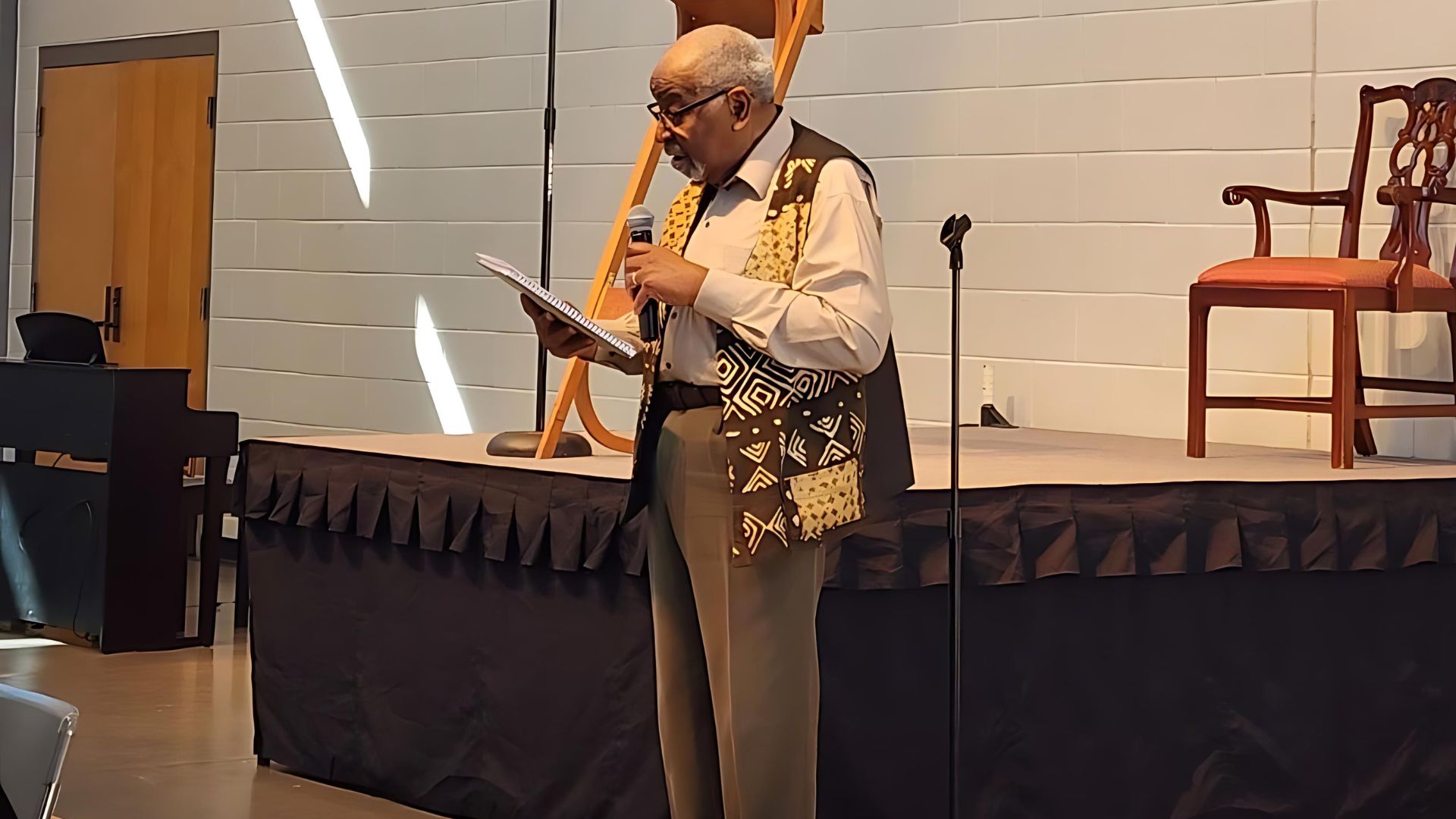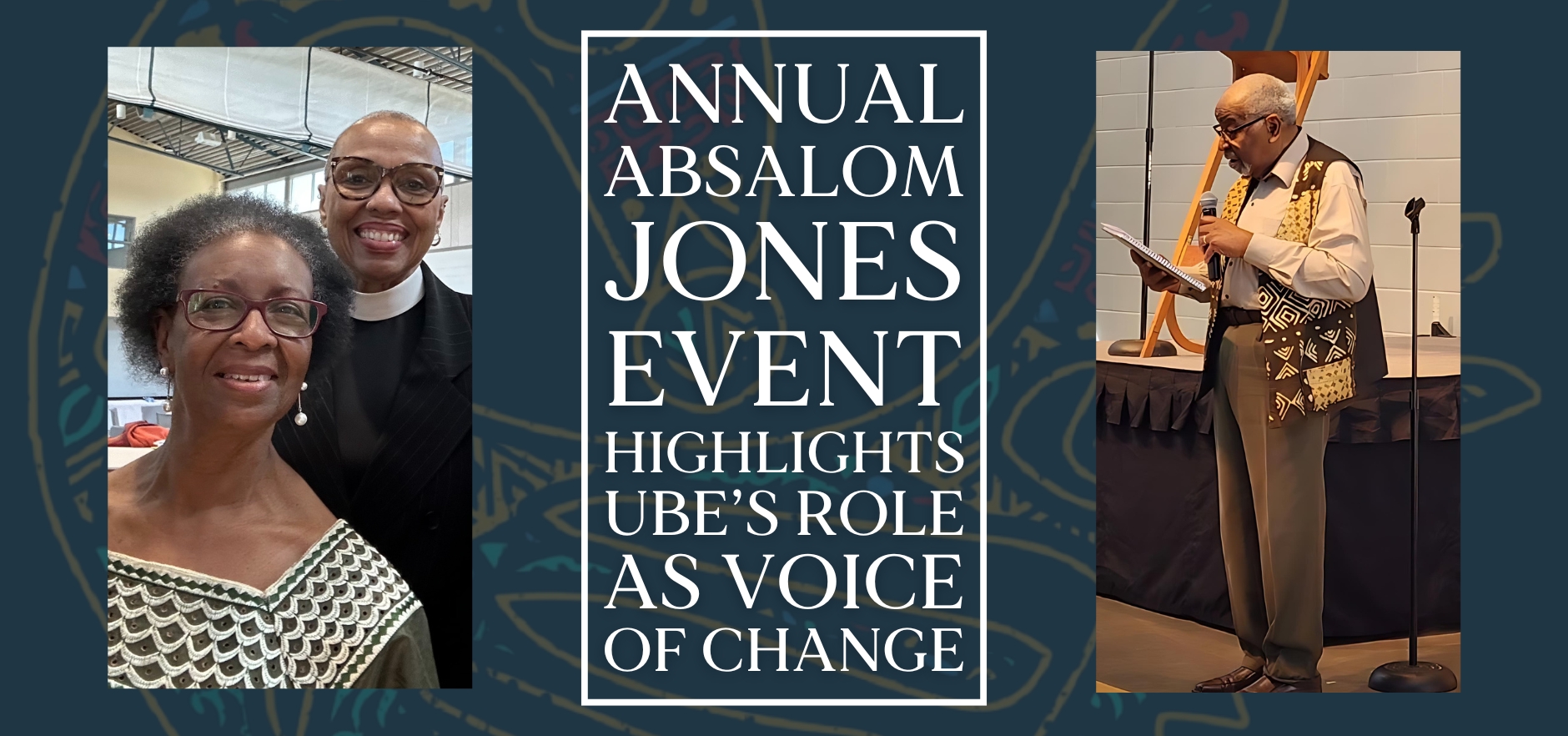“Absalom stayed.”
That’s how Dr. John Robertson, president of the Canon Nelson Pinder Union of Black Episcopalians Chapter of Central Florida, summarized the legacy of the nation’s first Black Episcopal priest. The local chapter from the Diocese of Central Florida held its 2024 Absalom Jones Celebration on Saturday, Feb. 24 at All Saints, Winter Park, featuring the Rev. Dr. Gayle Fisher-Stewart as guest speaker.
Fisher-Stewart focused on connecting the challenges of the past to the current challenges and successes as well as to those that lie ahead, Robertson said. An author and ordained priest who has also taught at the university level, she retired from the Metropolitan Police Department in our nation’s capital prior to accepting the call to ordained ministry.

(L-R): Diocesan Board member Ama Brown-Fenton, Carrie Brown, the Rev. Dr. Gayle Fisher-Stewart, Sonja Johnson and Faye Henderson at All Saints, Winter Park, celebrating the legacy of Absalom Jones.| Photo: Courtesy Faye Henderson
Robertson said the day’s theme of “Sankofa: From Absalom to the Future” reminded him of a key message for the UBE as a whole: “The struggle of having a Black voice within our larger church has been important from the earliest days of The Episcopal Church in the U.S. … Absalom Jones and Richard Allen [founder of the African Methodist Episcopal Church] were discriminated against, and Allen decided to leave the church, but Absalom decided to stay.
“And so over the many permutations of groups that have attempted to become a voice within The Episcopal Church, that voice and that aspiration of staying within the church and becoming a voice of change has remained,” he explained. “Absalom stayed, and the founders of the UBE stayed. We felt we needed to be that voice, increasing our numbers within the church, also encouraging there to be more African American and diverse clergy along with increasing the diverse laity in the church, and really looking to carry out the baptismal covenant in our activities.”
“He was also influential in the yellow fever epidemic in the 1790s,” Robertson said of Jones, pointing to him as a model for the UBE’s continued emphasis on social justice. “He and Richard Allen were social advocates, and they formed a volunteer corps of individuals who went into the homes of yellow fever victims and cared for them. It’s estimated that through their leadership, they saved something like 10% of the population of Philadelphia. … Absalom Jones also formed a social service agency to help those individuals who were coming out of slavery – and again, this was before the Civil War.”
Fisher-Stewart’s message also emphasized the priority of social activism. “We are Jesus’ hands and feet and mouth,” she said, referencing a prayer from Teresa of Ávila. “And to cast out the demon of racism, to heal from the demon of racism, we are the ones who must look evil in the eye and do as Jesus did when he cast out the demon from the man in the synagogue. … When we challenge the evil spirits of racism and white supremacy with the power of love – that’s what love is, demanding that we be treated as the children of God we are – when we dedicate our very lives to making God’s reign real right here, right now, there will be a better world for our children, grandchildren, nieces, nephews and the generations that follow our time here on this earth.”

Dr. John Robertson speaking at the 2024 Absalom Jones Celebration at All Saints, Winter Park. | Photo: Courtesy Faye Henderson
The diocesan UBE is serving as the hands, feet and mouth of Jesus in multiple ways, Robertson said. “No. 1, we were very active in the process of the selection of our current bishop by serving on the Search Committee. Second, we are working with the Becoming Beloved Community Task Force, which is taking a look at the history, the leadership and the opportunities to educate our diocese on racism and attempting to correct the wrongs that have been committed in the past. And then third, we’re attempting to look at recruitment and just how welcoming or not welcoming the diocese is to Black clergy. … These are just some of the things that we see that are really important.
“And so we feel that by dialoguing with our Absalom Jones event and dialoguing through talking with members of the BBC Task Force and then also talking with the bishop, we may be able to create the change in becoming an inviting place, both for clergy and for individuals who have moved into our area,” he said.
Robertson also noted that the UBE offers an annual scholarship to students from the two surviving Episcopal historically Black colleges and universities: Saint Augustine’s University in Raleigh, North Carolina, and Vorhees University in Denmark, South Carolina. “From Absalom to the present and future, we see the work that we do with students as part of an investment in the future,” he said.
The UBE is intentional in its partnership with various churches for its annual Absalom Jones event. “Father Stu Shelby of All Saints was wonderful in warmly welcoming us,” Robertson said. “He couldn’t be there because of a previous commitment, but his staff and everyone really welcomed us. One of the things that we’ve attempted to do with the Absalom Jones event is to carry the message of Absalom Jones to the entire diocese. This is a church-wide celebration, an Episcopal-wide celebration. Despite that, not that many individuals outside of predominantly African American churches know the importance and the significance of both Absalom Jones and the UBE.”
The Most Rev. Michael B. Curry, current presiding bishop of The Episcopal Church, is a longtime UBE member, he added. “We feel that the spirit of love that he has promoted in his tenure as the presiding bishop, and the focus on love and social justice, is something that the UBE has attempted to promulgate and to emphasize in our work.
“Many people wonder, because we’re the Union of Black Episcopalians, whether that’s an exclusive social club,” Robertson said. “But UBE has always had a diversity of members across ethnic and racial lines, including quite a diversity in our chapter. And so again, while we’re the Union of Black Episcopalians, our aim is to become that voice that aims to promote social justice and aims to become a voice in the church as Absalom attempted.”

